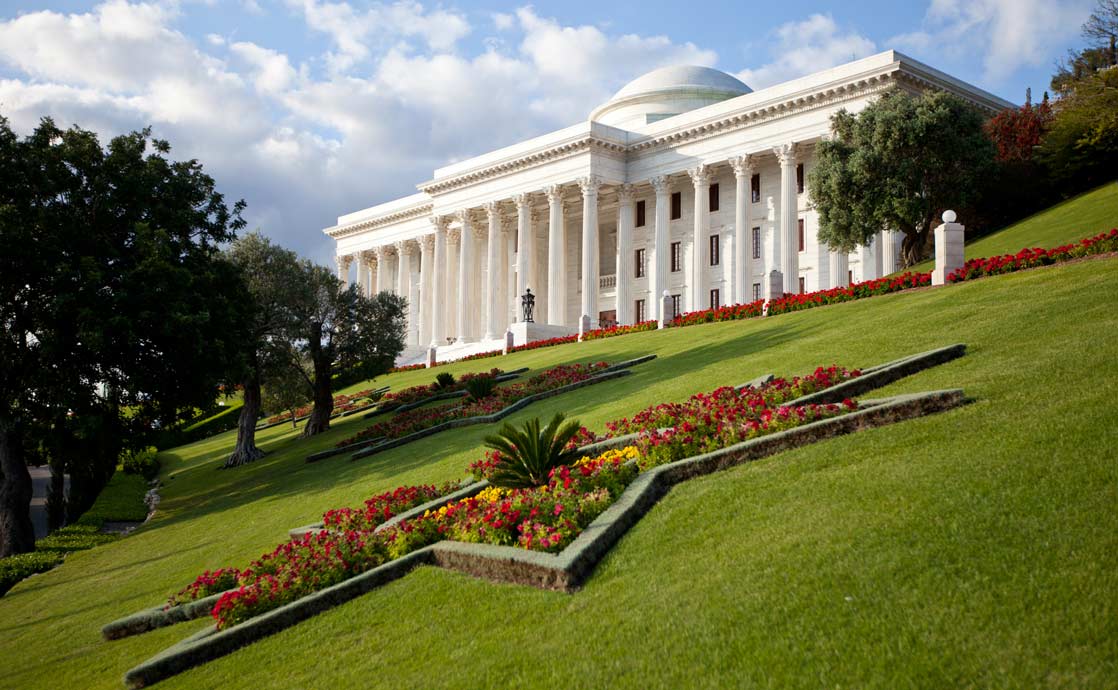The notion of a Democratic Global Governing Council, particularly within the framework of Bahá’í teachings, captivates the imagination and poses an intriguing inquiry: Is such a governing body conceivable in today’s complex and often fragmented world? The extensive implications of this question unfold against a backdrop of Bahá’í principles, which emphasize unity, justice, and the essential oneness of humanity. This exploration will delve into these teachings to critically assess the feasibility and potential efficacy of a global governing structure that is democratic and inclusive.
To navigate this discourse, it is essential to highlight several key tenets of Bahá’í belief. Fundamental to the religion is the principle of the oneness of humanity, positing that all individuals are part of a single family. This is not merely a philosophical statement; it prompts tangible actions aimed at fostering global cooperation and peace. Furthermore, the Bahá’í faith holds a commitment to the abolition of prejudice of all kinds, encouraging an environment where dialogue and negotiation surpass conflict and discord.
These principles articulate a vision that can serve as the bedrock for a Democratic Global Governing Council (DGGC). At its core, a DGGC would ideally consist of representatives from diverse nations, cultures, and backgrounds. Such a council could systematically deliberate significant issues confronting humanity, such as climate change, global inequality, and technological advancement, promoting collaborative solutions rather than unilateral actions that often exacerbate existing divisions.
The challenge, however, lies in actualizing this idealistic framework. What mechanisms would ensure equitable representation? Would every voice be given due consideration, or would the council succumb to the historical paradigm where the strongest nations assert dominance over their less powerful counterparts? As history has evidenced, the aspiration for global governance frequently falters in the mire of political self-interest and nationalist sentiment. A robust system would need to encompass safeguards against such imbalances, ensuring that all nations, regardless of their economic or military prowess, have an equal stake in decision-making processes.
Moreover, consider the inherent complexities of cultural differences. The Bahá’í faith recognizes the vast diversity of human society, drawing lessons from various traditions and teachings. A globally representative council must navigate the intricacies of geopolitical landscapes, where divergent ideologies and values can lead to friction. Essential to overcoming these cultural barriers is fostering a spirit of understanding and respect for varied traditions—a premise significantly rooted in Bahá’í teachings that laud dialogue as a means of conflict resolution.
Additionally, the legitimacy of such a council hinges upon the degree of public support and engagement. Would citizenry around the world perceive a DGGC as a beneficial entity? Would they be willing to relinquish a degree of sovereignty for greater collective good? Historical resistance to supranational governance demonstrates the psychological and emotional hurdles that such an initiative would face. To galvanize global support, the DGGC must embody transparency, inclusiveness, and responsiveness to the needs of the populace.
Furthermore, one must consider the technological dimensions that could facilitate the operation of a Democratic Global Governing Council. Modern innovations in communication allow for broader and more efficient channels of dialogue than ever before. Digital platforms can enable real-time interaction among council members, enhancing the fluidity of discussions and decisions. These technologies could also empower citizens globally to engage with the governance process directly, mitigating the distance that often exists between political elites and grassroots communities.
However, reliance on technology brings forth challenges pertaining to privacy, security, and the digital divide, where unequal access to technology could perpetuate existing disparities. It is crucial to ensure that digital tools serve as instruments of inclusion rather than exacerbators of exclusion. Bahá’í teachings advocate for the development of universal education; thus, nurturing digital literacy becomes pivotal in enabling informed participation in global governance.
The concept of a Democratic Global Governing Council prompts a reimagining of the governance paradigms prevalent today. It encourages a move away from zero-sum politics characterized by divisiveness towards a cooperative model premised on collective benefit. Bahá’í teachings remind adherents of the necessity of unity and collaboration in addressing the profound challenges confronting humanity; the formation of such a council could embody these teachings in a practical, real-world application.
Despite the obstacles that lie ahead, envisioning a DGGC encourages a hope that is grounded in the Bahá’í commitment to justice and equity. The paths to create such a governing body necessitate resilience, adaptability, and sustained dialogue across cultural and political lines. The question remains both challenging and compelling: can the world muster the collective will to embrace such a revolutionary governing concept? While the prospect may seem daunting, Bahá’í teachings provide a framework within which to pursue this ideal, inviting a collaborative spirit towards transcending individual grievances for a harmonious global existence.
As the discourse on global governance evolves, it is essential to remain optimistic yet pragmatic. The idea of a Democratic Global Governing Council may not yield instant results, but it serves to illuminate the potential for fostering a global community built upon the values of unity and cooperation. Through concerted efforts and unwavering faith in humanity’s capacity for collective action, the dream of a DGGC could transform from a whimsical notion to an actionable reality—a beacon guiding the world’s nations toward a cohesive future.
